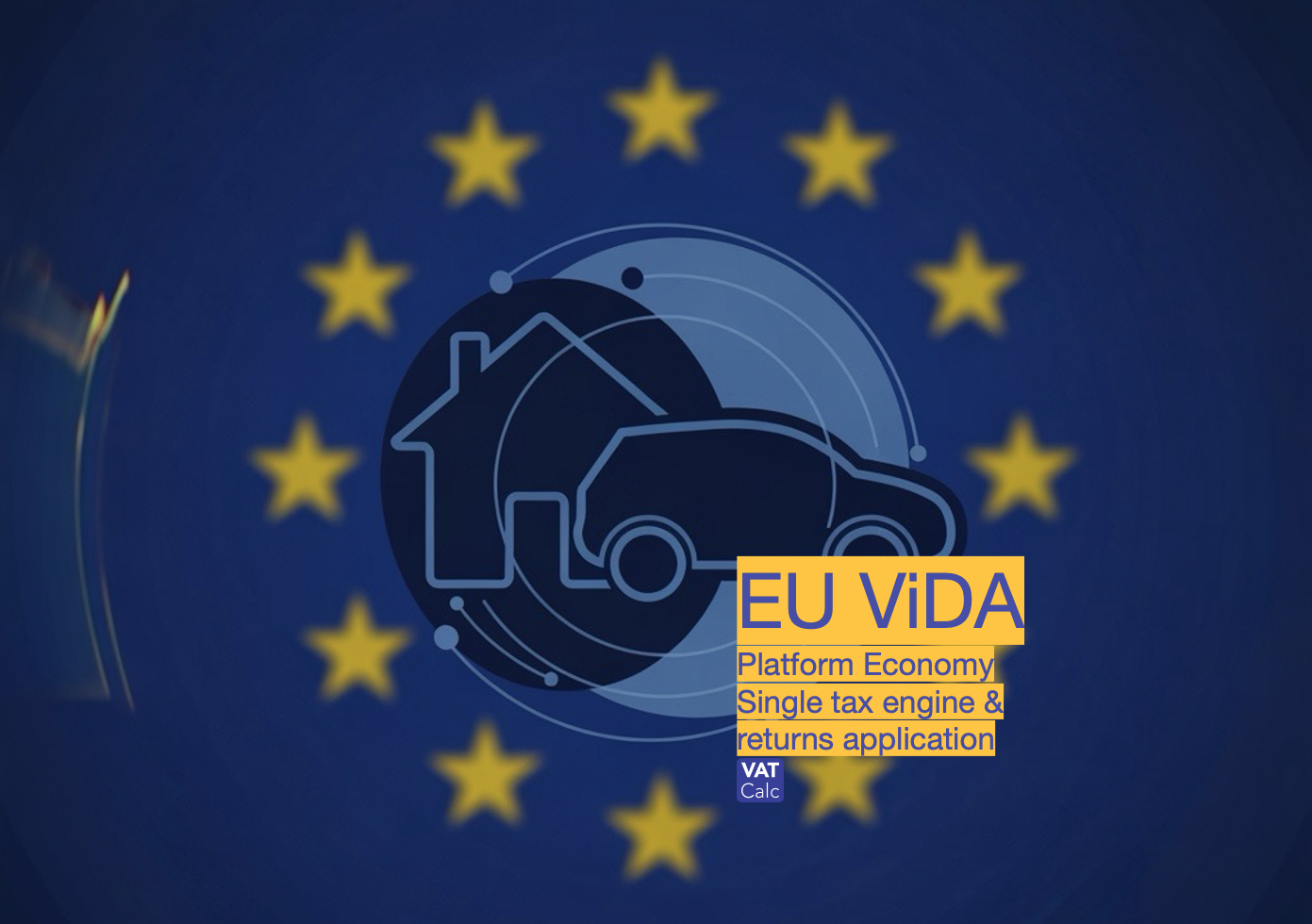ViDA challenge
VATCalc response
1. One Stop-Shop extension
There remains significant scope for variations between countries on switch of VAT from the home or ride sharers and their platforms.
VATCalc uniquely codifies national legislation in its tax engine, meaning it always reflects national opt-outs such as the new Platform Economy rules.
This includes: initial voluntary period when member states can opt it; or if the third-party sharer is already VAT registered.
This relieves platforms of having to attempt to track the difference; and this is simply integrated into the checkout via our tax engine API’s.
Platforms need to track and implement these variations to enable live VAT calculation in their e-commerce websites.
2. 27 variations in country returns and OSS
As part of the Single VAT Registration pillar of ViDA, EU member states have retained full scope to set their own standards and processes for collecting transaction details in regular and OSS returns that the marketplaces will now have to complete to report the VAT.
VATCalc supports all VAT return and OSS formats across the EU.
Which means platforms will have to monitor, build and support as many different returns, and include all VAT transactions
This includes local filings: SAF-T; ESL; Control Statements; Ledgers and more.
This major miss on harmonisation represents a huge resource ask for platforms; potentially putting a question over business models and smaller jurisdictions.
3. 2030 e-invoicing and e-reporting
ViDA also brings July 2030 mandate on e-invoicing between businesses and platforms, and e-reporting to governments
VATCalc also includes within its single app the ability to calculate VAT on e-invoiced or validate it on purchase invoice in real-time to meet this ViDA obligation.
The adds a further layer of invoice calculation and e-reporting obligations which must tie to regular and OSS returns to avoid triggering audits
And since the e-invoices are then used as the source data for returns and OSS, there are no lengthy manual reconciliations or discrepancies for the authorities.
